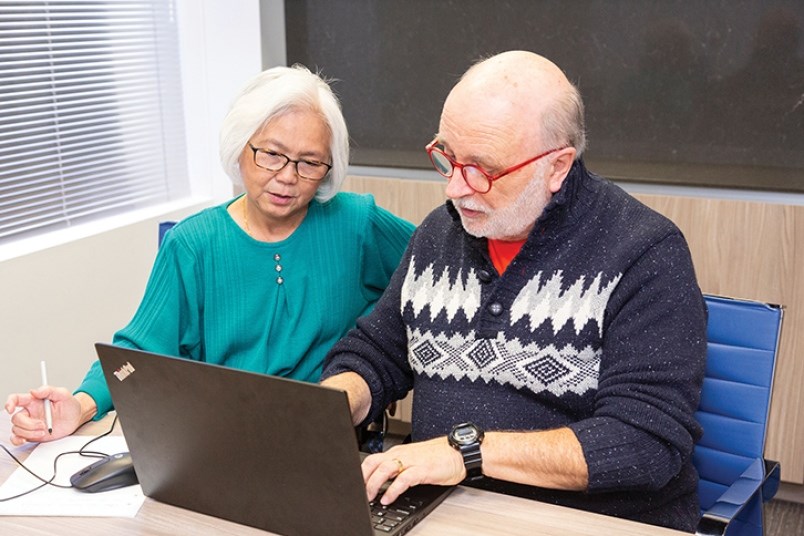Dementia doesn’t make you stupid. It makes it hard to solve problems the way you used to. It seems like pieces of the puzzle go missing for no reason. The last year my father-in-law lived with us, he called us all ‘hon’ or ‘sweetie’ because I don’t think he remembered who we were, let alone our names. But he still loved watching documentaries with me.
My mother is in the early stages of dementia. On her good days, you can’t tell. She has no idea what year it is or what day of the week. A calendar helps if it is displaying the right year and month. On her bad days, she loses the keys she has put in the same place for 40 years. The long-term memories get tangled together and she tells me my father did something my brother did. At that point I remember the sign at the entrance of the unit my father-in-law was in at the end. Connect, don’t correct.
Terrifying as it is for us, it is important to her mental health to be as independent as possible. Still living in the same place for 40 years, shopping at the same store, the same bank, the same insurance company, means habit can guide her. For now. So far, she has the slow-moving kind of dementia. So far, we have time to plan.
The older you get, the more likely it is that you will encounter someone with dementia. Sometimes it will be obvious. Sometimes it won’t. Apparently one in four of us will develop some form of dementia as we age. Some of us won’t have to wait for our 80s and 90s. Early onset versions can hit in your 50s, sometimes your 40s.
There are over 200 subtypes of dementia. Some go fast, some are a steady progression, and some will plateau for a year or so and then continue. Alzheimer’s is the best known. Your doctor or specialist can give you some ideas of what might happen but can’t tell you exactly how you or your loved one will react.
If you suspect you or someone you know is developing dementia, the first step is to talk to a doctor to get a referral or talk to a geriatric specialist. Get an assessment. It might be good news and it might not. It will set a baseline and introduce you to some of the institutional and systemic supports you will need.
It is important to start early because as the dementia progresses, the ability to make good decisions disappears bit by bit or suddenly. You don’t have to tell everyone, but you do need to tell key people and start planning. It’s OK to freak out for a while but denying what is happening doesn’t make it go away. Talk to the Alzheimer’s society. Find a support group online.
If the doctor suggests talking to a social worker, do not let your pride or shame or fear get in the way of accepting help. When my father-in-law was diagnosed with dementia and later “the Alzheimer’s process” our social worker was a life saver. She guided the family through the process of getting him and my mother-in-law the help they needed and a placement in a complex care ward when we could no longer cope with him at home. She was tactful and diplomatic while laying out the options and advising us on how the system worked.
A diagnosis of dementia doesn’t mean life is done. It does mean things are going to change. It does mean start planning. Who will take care of whom when the puzzle pieces of cognition go away? How long can they stay at home and how will you decide when the next level of care must happen? This is when that dispassionate social worker or care aide is a godsend. We may not want to give up, but they can gently let us know it is time for the next step before the crisis hits.
Sometimes the realities of aging suck.



